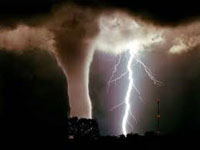As part of my new series for TdV, we will be doing something called Poem Analysis! I will be analyzing different poems starting with one by the famous poet himself: William Shakespeare.Pacman+Mariofan : You might be interested in this.Let's get right to it!"All the world's a stage,
And all the men and women merely players;
They have their exits and their entrances,
And one man in his time plays many parts,
His acts being seven ages."
Looking at this first verse, we see that William tries to develop a sense of theatre and dramatic irony while also keeping a realistic tone throughout the verse. The symbolization of the first verse leads us to think about the nature of our society today and how we interact with others.
Interestingly enough, William uses this to develop a fixture of age and how our personalities change according to our lifestyle: we suffer through sad, unhappy times while also going through amazing opportunities as well. This is clearly depicted well in the last two couplets.
At first, the infant,
Mewling and puking in the nurse's arms.
Then the whining schoolboy, with his satchel
And shining morning face, creeping like snail
Unwillingly to school. And then the lover,
Sighing like furnace, with a woeful ballad
Made to his mistress' eyebrow.
At first glance, this is obviously making a tribute to the ages, of how a human develops his life into something of importance. This undoubtedly shows steps of which we go through to reach a stage. The use of no commas nor full stops at the end of some of the lines depict the starting and stopping of our nature, our stereotypical, and ambiguous lives we live.
Then a soldier,
Full of strange oaths and bearded like the pard,
Jealous in honour, sudden and quick in quarrel,
Seeking the bubble reputation
Even in the cannon's mouth. And then the justice,
In fair round belly with good capon lined,
This shows exactly the same predicaments as the last verse however in a much more darker tone, we see that William uses the jealousy and quarrel of our nature to fuel an argument that we humans often dive over others' success, being more of a narcissist than anything. This becomes very honest when we disregard our own basic common sense for reputation and demanding of others support.
With eyes severe and beard of formal cut,
Full of wise saws and modern instances;
And so he plays his part. The sixth age shifts
Into the lean and slippered pantaloon,
As obvious, this is the climax of the poem and shows how deeply intervened we are in our lives at this point. As a rehearsal would. He makes a brave comparison to throw us back into the abstract nature of the poem while also keeping a firm ground on reality in the last couplet, obviously trying to create that statement as evident by the "formal cut" and "eyes severe".
With spectacles on nose and pouch on side;
His youthful hose, well saved, a world too wide
For his shrunk shank, and his big manly voice,
Turning again toward childish treble, pipes
And whistles in his sound.
This is an interesting part because it shows how our nature is to relive our past dreams, almost like a flashback in a movie, of some sort. It gives the impression of what we all do with an untimely comparison: age. He does this in a subtle way as to not include the word itself but to keep the empowerment of the poem going whilst showing we turned back to our childish ways after a while in the world.
Last scene of all,
That ends this strange eventful history,
Is second childishness and mere oblivion,
Sans teeth, sans eyes, sans taste, sans everything.
As the last verse in the poem, this is hard-hitting and genuine. It shows that the last scene is not a happy ending. What becomes apparent is the word, "strange", questioning our existence on this planet, which is valid. Recycling the cycle is what he describes in this last couplet as he puts the childish nature in second priority. The last stanza really drives it home, with saying that each person ends up with the same thing: death.
Overall, my analysis depicts that this shows the age and ingenuienity of our society and how we've developed to live this long. It gives more of an insight into our lives than a science experiment ever could.
As part of my new series for TdV, we will be doing something called Poem Analysis! I will be analyzing different poems starting with one by the famous poet himself: William Shakespeare.
Pacman+Mariofan : You might be interested in this.
Let's get right to it!
"All the world's a stage,
And all the men and women merely players;
They have their exits and their entrances,
And one man in his time plays many parts,
His acts being seven ages."
Looking at this first verse, we see that William tries to develop a sense of theatre and dramatic irony while also keeping a realistic tone throughout the verse. The symbolization of the first verse leads us to think about the nature of our society today and how we interact with others.
Interestingly enough, William uses this to develop a fixture of age and how our personalities change according to our lifestyle: we suffer through sad, unhappy times while also going through amazing opportunities as well. This is clearly depicted well in the last two couplets.
At first, the infant,
Mewling and puking in the nurse's arms.
Then the whining schoolboy, with his satchel
And shining morning face, creeping like snail
Unwillingly to school. And then the lover,
Sighing like furnace, with a woeful ballad
Made to his mistress' eyebrow.
At first glance, this is obviously making a tribute to the ages, of how a human develops his life into something of importance. This undoubtedly shows steps of which we go through to reach a stage. The use of no commas nor full stops at the end of some of the lines depict the starting and stopping of our nature, our stereotypical, and ambiguous lives we live.
Then a soldier,
Full of strange oaths and bearded like the pard,
Jealous in honour, sudden and quick in quarrel,
Seeking the bubble reputation
Even in the cannon's mouth. And then the justice,
In fair round belly with good capon lined,
This shows exactly the same predicaments as the last verse however in a much more darker tone, we see that William uses the jealousy and quarrel of our nature to fuel an argument that we humans often dive over others' success, being more of a narcissist than anything. This becomes very honest when we disregard our own basic common sense for reputation and demanding of others support.
With eyes severe and beard of formal cut,
Full of wise saws and modern instances;
And so he plays his part. The sixth age shifts
Into the lean and slippered pantaloon,
As obvious, this is the climax of the poem and shows how deeply intervened we are in our lives at this point. As a rehearsal would. He makes a brave comparison to throw us back into the abstract nature of the poem while also keeping a firm ground on reality in the last couplet, obviously trying to create that statement as evident by the "formal cut" and "eyes severe".
With spectacles on nose and pouch on side;
His youthful hose, well saved, a world too wide
For his shrunk shank, and his big manly voice,
Turning again toward childish treble, pipes
And whistles in his sound.
This is an interesting part because it shows how our nature is to relive our past dreams, almost like a flashback in a movie, of some sort. It gives the impression of what we all do with an untimely comparison: age. He does this in a subtle way as to not include the word itself but to keep the empowerment of the poem going whilst showing we turned back to our childish ways after a while in the world.
Last scene of all,
That ends this strange eventful history,
Is second childishness and mere oblivion,
Sans teeth, sans eyes, sans taste, sans everything.
As the last verse in the poem, this is hard-hitting and genuine. It shows that the last scene is not a happy ending. What becomes apparent is the word, "strange", questioning our existence on this planet, which is valid. Recycling the cycle is what he describes in this last couplet as he puts the childish nature in second priority. The last stanza really drives it home, with saying that each person ends up with the same thing: death.
Overall, my analysis depicts that this shows the age and ingenuienity of our society and how we've developed to live this long. It gives more of an insight into our lives than a science experiment ever could.
|






 User Notice
User Notice 


